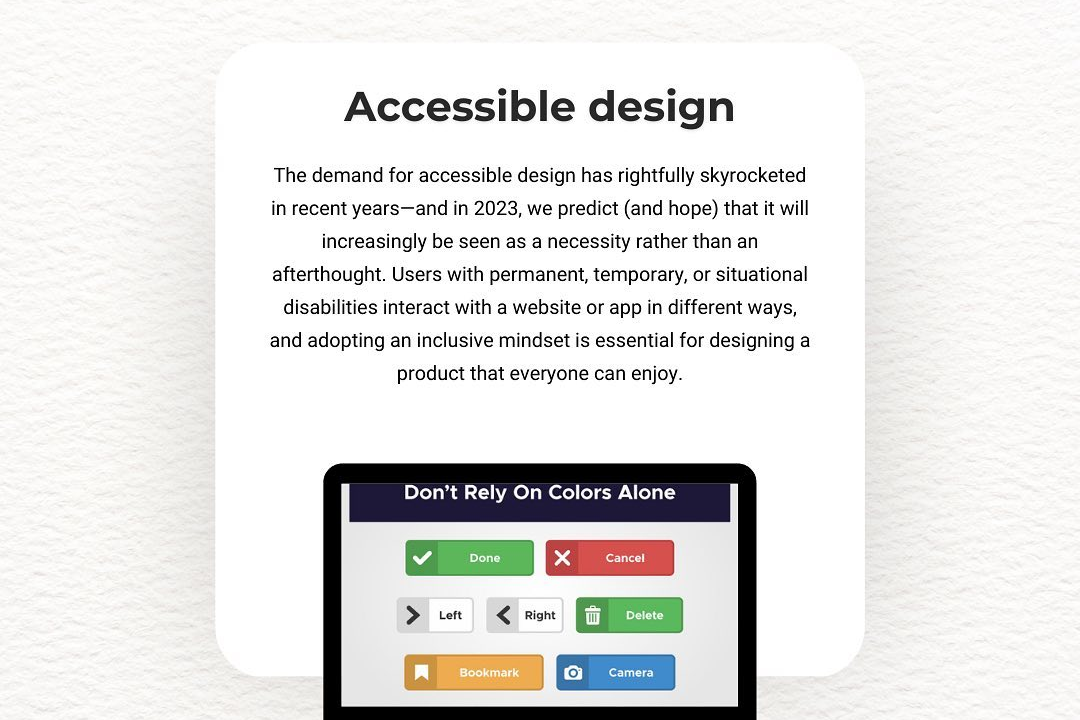Selenium One On One Training
Selenium one-on-one training is a personalized educational program designed to teach individuals the
Selenium One On One Training
Selenium one-on-one training is an invaluable resource for individuals seeking to master automation testing in a personalized setting. This approach allows participants to receive customized instruction tailored to their specific learning styles and pace, ensuring a deep understanding of Selenium's capabilities. With hands-on projects and real-time scenarios, learners not only gain theoretical knowledge but also develop practical skills crucial for automating web applications effectively. By focusing on individual needs, this training equips professionals with the expertise required to excel in the competitive field of software testing, making them more attractive candidates for employers in the industry.
To Download Our Brochure: https://www.justacademy.co/download-brochure-for-free
Message us for more information: +91 9987184296
Selenium one on one training is an invaluable resource for individuals seeking to master automation testing in a personalized setting. This approach allows participants to receive customized instruction tailored to their specific learning styles and pace, ensuring a deep understanding of Selenium's capabilities. With hands on projects and real time scenarios, learners not only gain theoretical knowledge but also develop practical skills crucial for automating web applications effectively. By focusing on individual needs, this training equips professionals with the expertise required to excel in the competitive field of software testing, making them more attractive candidates for employers in the industry.
Course Overview
The Selenium One-on-One Training course is designed to provide personalized instruction in automated software testing using Selenium. This comprehensive program covers the fundamentals of Selenium, including test case design, execution, and reporting, while enabling participants to engage in hands-on projects that simulate real-world scenarios. Trainees will learn how to effectively automate web applications, write robust test scripts, and troubleshoot common issues. With one-on-one mentorship, learners can progress at their own pace, ensuring mastery of the skills needed to excel in automation testing and enhance their career opportunities in the tech industry.
Course Description
The Selenium One-on-One Training course offers personalized, in-depth instruction on automated testing using Selenium, a widely-used web application testing framework. Tailored to individual learning needs, this course covers essential topics such as test case creation, script automation, and best practices for effective testing. Participants will engage in hands-on projects that mirror real-world applications, enabling them to build practical skills while receiving direct mentorship. This supportive learning environment ensures that students not only grasp the theory behind Selenium but also gain the confidence to tackle automation challenges in their professional careers. Whether you're a beginner or looking to enhance your existing knowledge, this course equips you with the expertise needed to succeed in the realm of software testing.
Key Features
1 - Comprehensive Tool Coverage: Provides hands-on training with a range of industry-standard testing tools, including Selenium, JIRA, LoadRunner, and TestRail.
2) Practical Exercises: Features real-world exercises and case studies to apply tools in various testing scenarios.
3) Interactive Learning: Includes interactive sessions with industry experts for personalized feedback and guidance.
4) Detailed Tutorials: Offers extensive tutorials and documentation on tool functionalities and best practices.
5) Advanced Techniques: Covers both fundamental and advanced techniques for using testing tools effectively.
6) Data Visualization: Integrates tools for visualizing test metrics and results, enhancing data interpretation and decision-making.
7) Tool Integration: Teaches how to integrate testing tools into the software development lifecycle for streamlined workflows.
8) Project-Based Learning: Focuses on project-based learning to build practical skills and create a portfolio of completed tasks.
9) Career Support: Provides resources and support for applying learned skills to real-world job scenarios, including resume building and interview preparation.
10) Up-to-Date Content: Ensures that course materials reflect the latest industry standards and tool updates.
Benefits of taking our course
Functional Tools
1 - Selenium WebDriver
Selenium WebDriver is the core tool used in Selenium One on One Training. It allows testers to interact with web applications in various browsers (like Chrome, Firefox, and Safari) through programming languages such as Java, Python, C#, and Ruby. The WebDriver API provides a simple and intuitive way to control browser actions, enabling students to create and execute automated test scripts effectively. During training, learners will become familiar with its functions, capabilities, and best practices for writing efficient test cases that ensure comprehensive coverage of application functionalities.
2) TestNG
TestNG is a testing framework inspired by JUnit and NUnit, designed to enable the creation of comprehensive tests. It is an essential tool in the Selenium training curriculum, allowing students to organize tests, manage test dependencies, and conduct parallel test execution. TestNG supports annotations that enhance test management by providing features such as grouping, parameterization, and data driven testing. Participants will learn how to utilize TestNG effectively in tandem with Selenium WebDriver, which empowers them to streamline their testing process and produce organized, maintainable test suites.
3) Maven
Maven is a build automation tool that manages project dependencies and facilitates project configuration for Java based applications. In the context of Selenium One on One Training, students will learn how to use Maven to manage their test projects, simplify the build process, and ensure that required libraries and dependencies are properly configured. With Maven, learners can efficiently update and manage Selenium and related plugin dependencies, resulting in a smoother development environment. Mastering Maven enhances the project structure and automates various tasks, empowering students to devote more time to test development.
4) Jenkins
Jenkins is an open source automation server that provides a platform for continuous integration and continuous delivery (CI/CD) in software development. In the training program, students will explore how to integrate Selenium tests with Jenkins to facilitate automated testing within the CI/CD pipeline. This allows them to schedule tests, monitor builds, and quickly identify bugs in the application. Understanding Jenkins will enable participants to create and manage a seamless workflow that enhances the testing process, facilitates frequent releases, and improves collaboration among development and QA teams.
5) Git
Git is a version control system that allows developers to track changes in their code and collaborate effectively on projects. It plays a crucial role in Selenium training as students will learn to use Git for source code management, versioning, and collaboration on their test scripts. By utilizing Git, participants can maintain repositories of their automation frameworks, revert to previous versions if necessary, and collaborate with other testers in a structured manner. Familiarity with Git is essential for modern software development environments, and mastering it will prepare students to work in team based settings.
6) Selenium Grid
Selenium Grid is a tool that facilitates distributed testing, enabling multiple tests to run simultaneously across various environments and browsers. During the training program, students will learn how to set up and configure Selenium Grid, allowing them to execute tests on different machines in parallel. This capability is crucial for reducing the overall time taken for testing and ensuring that applications function seamlessly across different platforms. By integrating Selenium Grid into their testing strategy, learners will gain insights into scalability, performance testing, and the importance of cross browser compatibility.
Certainly! Here are additional points that can further enhance the understanding of tools and technologies often included in Selenium training courses:
7) Page Object Model (POM)
The Page Object Model is a design pattern that promotes the separation of test scripts from the application's UI. In Selenium training, learners will discover how to implement POM to create a more organized and maintainable codebase. By encapsulating web elements and associated actions within individual page classes, students will be able to reduce code duplication, manage page interactions effectively, and streamline test case updates when application changes occur. This design pattern facilitates better collaboration and enhances the readability of codes among team members.
8) Behavior Driven Development (BDD)
BDD is a software development methodology that encourages collaboration among developers, testers, and business stakeholders. In Selenium training, students will explore frameworks like Cucumber that support BDD in the context of automated testing. By writing tests in human readable language, students learn how to create scenarios that align closely with business requirements. This approach improves communication among team members and helps ensure that the automated tests accurately reflect user expectations.
9) API Testing with RestAssured
In addition to UI testing, it is essential for quality assurance professionals to have a grasp of API testing. Selenium training can incorporate tools like RestAssured, which simplify testing RESTful APIs. This knowledge will enable learners to perform end to end testing by validating both the user interface and the underlying services, ensuring that the application as a whole functions as intended. Becoming proficient in API testing complements Selenium automation skills and ultimately enhances the overall testing process.
10) Reporting and Logging
Effective reporting and logging are vital for analyzing test results and identifying areas for improvement. In Selenium training, students will learn about various reporting tools such as ExtentReports and Log4j, which help generate comprehensive test reports and logs. This proficiency ensures that teams have clear visibility into test execution results, error occurrences, and overall automated test coverage. Students will appreciate the importance of documentation in the development and testing lifecycle.
11 - Handling Dynamic Elements
Modern web applications frequently include dynamic elements that can complicate test automation. During the training program, learners will develop strategies for effectively dealing with dynamically changing web elements using techniques like implicit and explicit waits, as well as JavaScript Executor. A thorough understanding of how to interact with these elements enables students to write reliable test scripts that maintain their effectiveness even as the application evolves.
12) Framework Design
Beyond utilizing tools, it's important for students to learn how to design robust automation frameworks. Selenium training will cover topics like framework architecture, modular design, and configuration management. Participants will engage in discussions about different types of frameworks (data driven, keyword driven, hybrid) and gain insights into selecting the appropriate framework based on project requirements. This knowledge equips learners to create scalable and effective automation solutions tailored to their organization’s specific context.
13) Test Data Management
In automated testing, effective test data management is paramount. In the training course, students will explore various strategies for managing test data, including the use of databases or external files (like CSV, Excel, or JSON) for test data sourcing. Understanding how to set up and manipulate test data will enable learners to create more dynamic and reusable tests and conduct meaningful data driven testing.
14) Cross Browser Testing
Cross browser compatibility is crucial for web applications since users access them from various browsers and devices. In the training program, students will gain insights into cross browser testing strategies, which ensure that their automated tests work seamlessly across all major browsers. By learning how to configure tests for different browsers and identifying potential compatibility issues early in the testing process, participants will improve the quality and reliability of the applications they test.
By incorporating these additional points, Selenium training becomes a more comprehensive program that not only covers the basics but also prepares students for real world scenarios they will encounter in their careers.
Browse our course links : https://www.justacademy.co/all-courses
To Join our FREE DEMO Session:
This information is sourced from JustAcademy
Contact Info:
Roshan Chaturvedi
Message us on Whatsapp: +91 9987184296
Email id: info@justacademy.co












